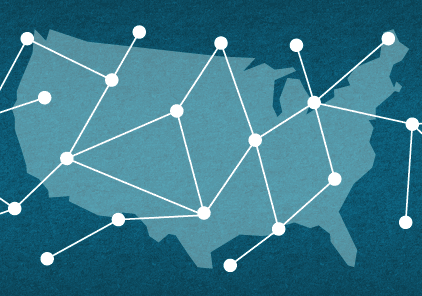
Contrary to what AT&T and Verizon would have you believe, FCC Chairman Tom Wheeler today said 4Mbps is too slow to be considered broadband and that Internet service providers who accept government subsidies should offer at least 10Mbps.
Last week, we reported on AT&T and Verizon urging the FCC to abandon a proposal that would redefine broadband download speeds from 4Mbps to 10Mbps. If the standard is raised, ISPs that accept government subsidies to build networks in hard-to-reach rural areas would have to provide the higher speed. AT&T and Verizon argued that 4Mbps is good enough, but Wheeler said otherwise today at a hearing in front of the US House Committee on Small Business.
US Rep. Blaine Luetkemeyer (R-MO) pointed to communities with little or no access to high-speed broadband, saying if the minimum speed isn’t high enough, “rural constituents in my district will be left on the wrong side of the digital divide.”
Wheeler responded: “We have proposed increasing the throughput in order to get Universal Service funds from 4Mbps to 10Mbps for precisely the reason that you mentioned, that you can’t have a digital divide. When 60 percent of the Internet’s traffic at prime time is video, and it takes 4 or 5Mbps to deliver video, a 4Mbps connection isn’t exactly what’s necessary in the 21st century. And when you have half a dozen different devices, wireless and other connected devices in a home that are all going against that bandwidth, it’s not enough. What we are saying is we can’t make the mistake of spending the people’s money, which is what Universal Service is, to continue to subsidize something that’s subpar.”
Wheeler said he hopes to “have that issue tidied up” by the end of this year.
The money in question comes from the Connect America Fund, paid for by phone customers through bill surcharges. AT&T and Verizon declined a combined $67.5 million of the funding in 2012, while FairPoint, CenturyLink, and Windstream accepted funding, FierceTelecom reported at the time.
AT&T changed its mind in 2013, deciding to accept $100 million after the FCC made some changes to the program. AT&T said the money would let it “deploy broadband to approximately 129,000 locations that lack any fixed broadband service of at least 768 kbps/200 kbps.”
By accepting that funding, AT&T had to provide at least 4Mbps downstream and 1Mbps upstream to customers who previously had no access to broadband speeds. AT&T was required to deploy service to two-thirds of the locations within two years and to all of them within three years.
The proposed minimum of 10Mbps download speeds (and potentially more than 1Mbps upstream speed) would apply to future grants.
Wheeler discussed several other topics with the House committee today. The FCC needs to promote Internet service competition in areas of the country where it doesn't exist, he said. "Regulation can never be as efficient as competitive innovation," he said. "We must make sure that where broadband competition is unrealistic, we must shoulder the responsibility to promote it."
Earlier this month, Wheeler pointed out in a speech that most Americans have a choice of only two ISPs at speeds of 4Mbps and 10Mbps. At 25Mbps, "there is simply no competitive choice for most Americans," he said.
The FCC is examining whether it should preempt state laws that make it hard for cities and towns to compete against private Internet service providers. The commission is also preparing new network neutrality rules. Consumer advocates have called upon the FCC to reclassify broadband as a "Title II" common carrier service, opening Internet service up to utility-style regulation. The FCC asked the public to weigh in on Title II as part of its net neutrality proceeding but hasn't gone so far as to say that it will reclassify ISPs.
"Title II is very much a topic of conversation and on the table and something we specifically asked for comment on," Wheeler told the House committee.
The FCC received 3.7 million comments about a tentative net neutrality proposal. The commenting period is over, but the FCC hasn't said yet when it will propose final rules.
reader comments
146